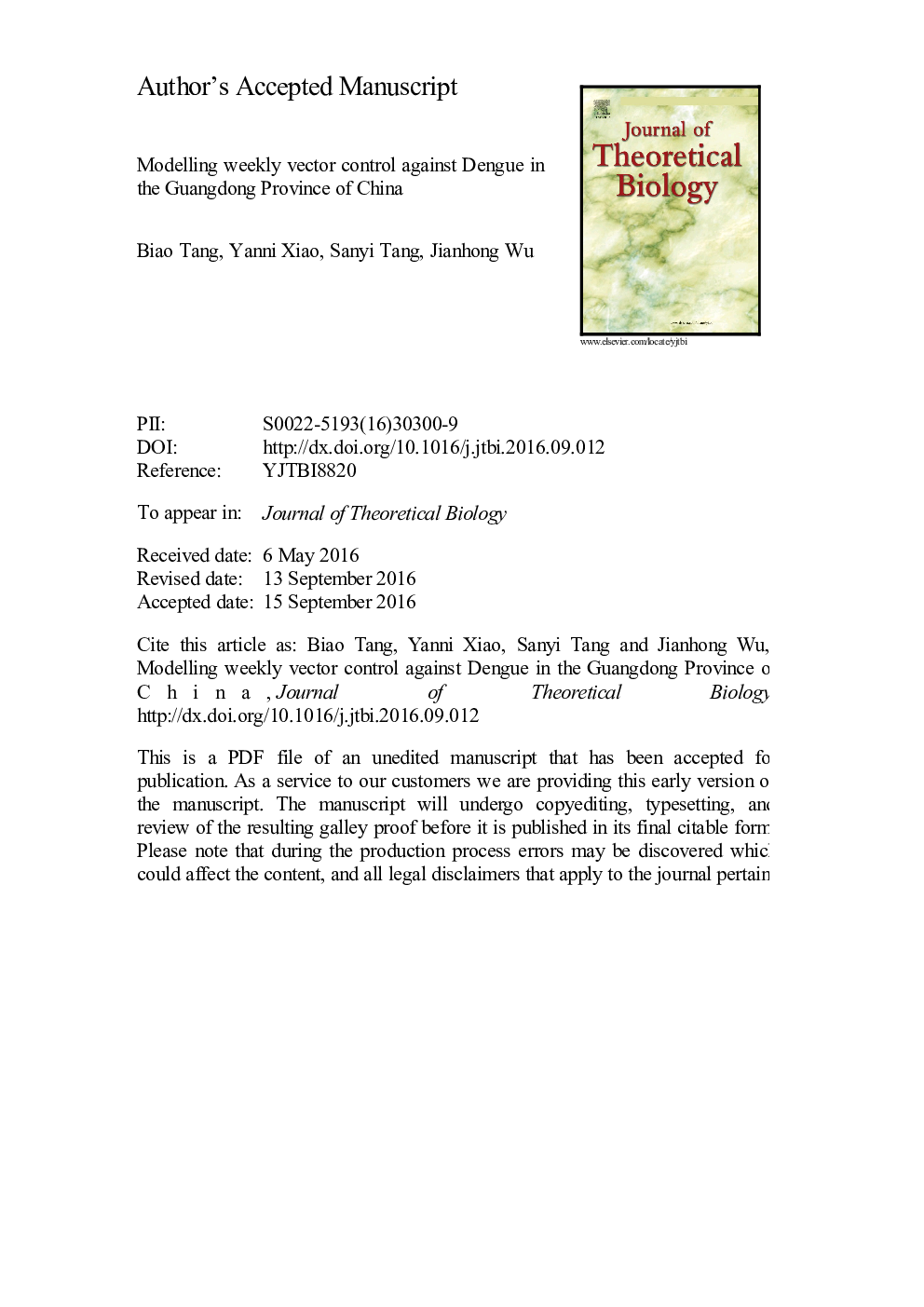| Article ID | Journal | Published Year | Pages | File Type |
|---|---|---|---|---|
| 6368840 | Journal of Theoretical Biology | 2016 | 34 Pages |
Abstract
We develop a mathematical model to closely mimic the integrated program of impulsive vector control (every Friday afternoon since the initiation of the program) and continuous patient treatment and isolation implemented in the Guangdong Province of China during its 2014 dengue outbreak. We fitted the data of accumulated infections and used the parameterized model to carry out a retrospective analysis to estimate the basic reproduction number 1.7425 (95% CI 1.4443-2.0408), the control reproduction number 0.1709, and the mosquito-killing ratios 0.1978, 0.2987, 0.6158 and 0.5571 on October 3, 10, 17 and 24, respectively. This suggests that integrated intervention is highly effective in controlling the dengue outbreak. We also simulated outbreak outcomes under different variations of the implemented interventions. We showed that skipping one Friday for vector control would not result in raising the control reproduction number to the threshold value 1 but would lead to significant increase in the accumulated infections at the end of the outbreak. The findings indicate that quick and persistent impulsive implementation of vector control result in an effective reduction in the control reproduction number and hence lead to significant decline of new infections.
Related Topics
Life Sciences
Agricultural and Biological Sciences
Agricultural and Biological Sciences (General)
Authors
Biao Tang, Yanni Xiao, Sanyi Tang, Jianhong Wu,
